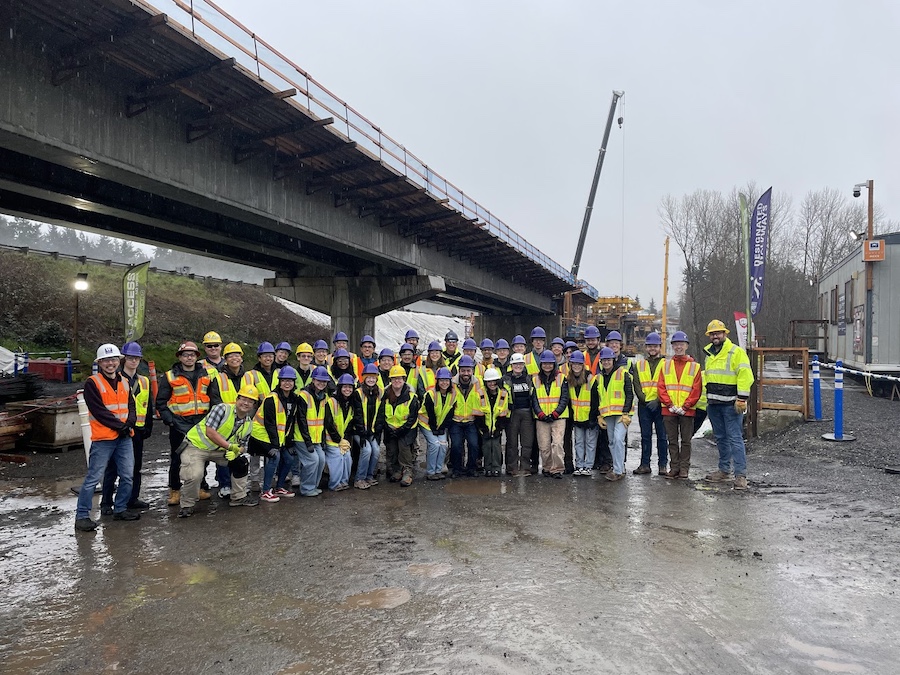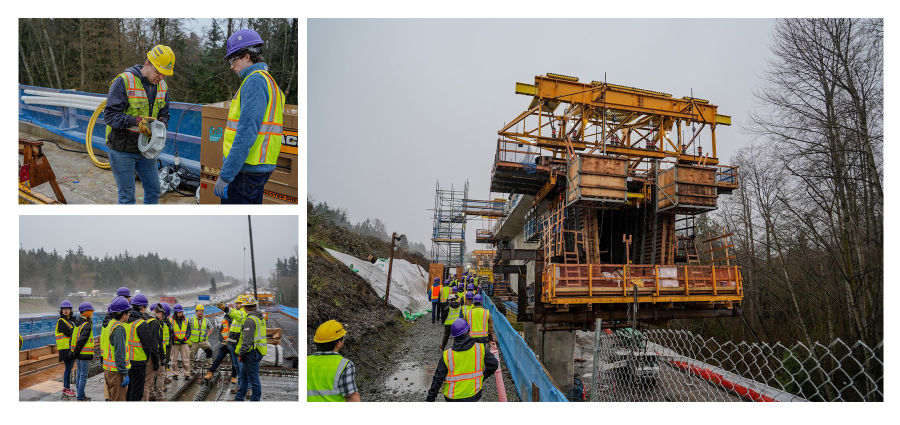By Julia Davis
May 21, 2024
Kiewit shows students around the Federal Way Link Extension construction site.

A group photo of the students and Kiewit workers who participated in the field trip. Photo courtesy of Steve Muench.
In the early spring mists of March in Seattle, a group of students equipped with hard hats and high-visibility safety vests gathered at the Federal Way Link Extension project site.
Led by the contractor Kiewit, the field trip offered an up-close view of a section of one of the most ambitious infrastructure projects in the Seattle area. The focus of the visit was to learn about the Federal Way Link Extension project, a $1.4 billion initiative to extend light rail from Angle Lake to Federal Way in King County, Washington. The project encompasses a range of critical infrastructure elements, including three new stations, eight bridges and a tunnel. The work is expected to be completed in 2026. During the tour, the students learned about a balanced cantilever bridge that is being built across Star Lake, an example of the engineering challenges and solutions inherent in such an extensive project.
“There's nothing better than a construction site tour where you get to walk out on a cool bridge that’s under construction,” says Professor Steve Muench, who organized the site visit. “When we go on these trips, I want the students to be able to get as close to the most interesting work as possible while remaining safe.”
Most of the students on the field trip were enrolled in CEE 307, a construction engineering course taught by Muench. Before the field trip, alumnus Ryan Anderson (BSCE ’08), who now works at Kiewit, spoke to the class about his experience working on the project. The excursion was possible because of collaborations with industry leaders like Kiewit and support from organizations such as The Beavers.
The feedback from students was overwhelmingly positive. Many appreciated the chance to talk to engineers involved in various parts of the project and see different engineering disciplines working together on one project.
“These kinds of trips are great because they help students form that complete picture of all the jibber jabber that we talk about in class,” Muench says. “Getting to see the concepts in action just brings everything together and gives you a more holistic view of what it is you're actually studying.”

Top left: A student learns about one of the components of the construction project from a Kiewit worker. Bottom left: Kiewit workers show students some of the track work for the new light rail station. Right: Students prepare to climb up to the bridge deck. Photos courtesy of Steve Muench.